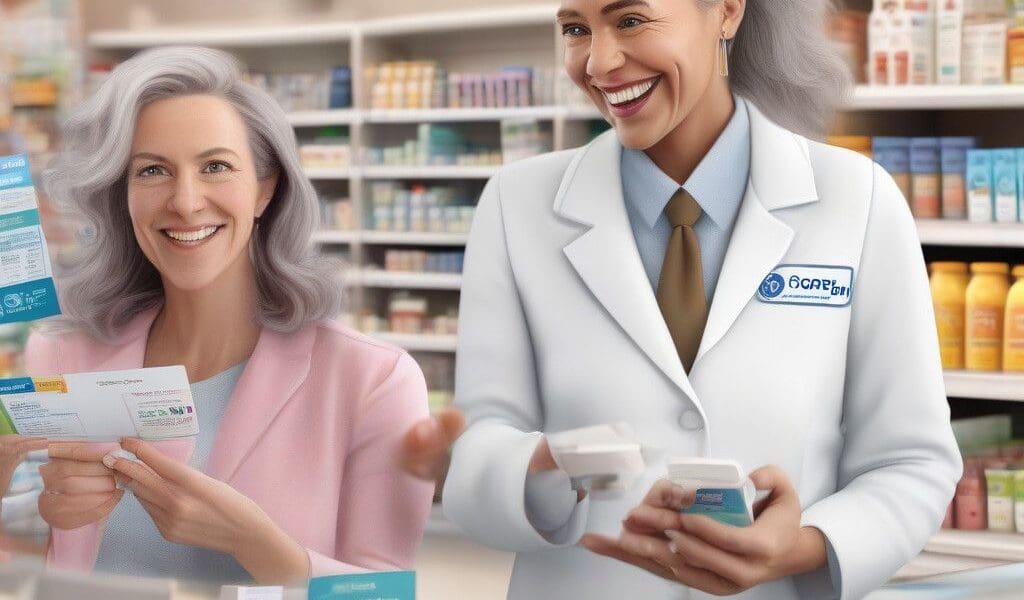In an innovative approach to community health and consumer savings, Kroger Health, the healthcare division of The Kroger Co., has rolled out a promotion linking vaccinations to grocery coupons. This initiative, particularly timely as flu season approaches, aims to incentivize individuals to receive their vaccines while simultaneously offering them a financial benefit that enhances their shopping experience.
Kroger’s promotional strategy includes providing customers with a $5-off coupon for a flu shot, with the incentive increasing to a $20-off coupon for those who receive both a flu shot and another vaccine during the same visit. Colleen Lindholz, President of Kroger Health, emphasized the importance of this initiative, stating, “Vaccines are one of the most effective ways that we help protect our customers from illnesses and contribute to healthy communities.” This statement not only reflects Kroger’s commitment to public health but positions the company as a proactive participant in the fight against widespread illnesses.
To take advantage of the promotion, customers must mention the offer when getting vaccinated. Those receiving their shots at Kroger banner pharmacies will have their savings loaded onto their loyalty cards, while a paper coupon will be issued to patients vaccinated at The Little Clinic, Kroger’s urgent care alternative, which serves over 1.5 million patients each year.
Eligibility for the promotion is limited to individuals under the age of 65, who must receive vaccinations at participating Kroger banner pharmacies or The Little Clinic locations. Notably, specific locations in Arkansas and Alabama are excluded, as are individuals eligible for federally funded healthcare programs like Medicaid and Medicare. This targeted approach ensures that the promotion reaches a demographic likely to benefit from both vaccinations and grocery savings.
Kroger Health, which serves more than 17 million patients annually, operates over 2,200 pharmacies across 35 states. Additionally, The Little Clinic offers telehealth services and runs more than 220 in-person clinics. The healthcare team at Kroger is extensive, featuring 24,000 professionals, including pharmacists, nurse practitioners, and registered dietitians. This robust healthcare framework provides Kroger with a strong foundation on which to base its health-related initiatives.
The significance of this promotional tactic cannot be overstated. By linking essential health services, such as vaccinations, with savings on groceries, Kroger is tapping into a powerful intersection of consumer behavior. The idea of receiving a discount at a grocery store is likely to resonate with many consumers, potentially leading to increased foot traffic at Kroger locations. Moreover, this strategy aligns with the growing trend of promoting healthy lifestyles while offering convenience and savings.
This initiative mirrors similar approaches taken by other retail giants in the past. For instance, Walgreens has employed similar strategies, providing discounts for customers receiving health screenings or vaccinations. These promotions not only drive traffic to stores but also foster community trust and loyalty among customers.
In addition to enhancing customer experience and public health outcomes, Kroger’s initiative may also lead to an increase in loyalty program memberships. By integrating healthcare and grocery savings, Kroger is making a compelling case for customers to engage more deeply with their loyalty programs, enhancing their long-term value proposition. This is particularly relevant in an age where consumers increasingly seek value in their shopping experiences.
Kroger’s innovative approach to blending health and savings could serve as a model for other retailers looking to enhance customer engagement through similar initiatives. By promoting vaccinations, Kroger is not just improving community health outcomes—it is reinforcing its identity as a caring and conscientious retailer.
As the flu season approaches, this initiative offers an effective solution for consumers seeking both health protection and financial savings. It positions Kroger as a leader in the grocery industry, adeptly intertwining public health messages with compelling consumer incentives.
In conclusion, Kroger’s linkage of vaccines to grocery coupons represents a strategic advancement in both health promotion and consumer engagement. By incentivizing vaccinations, Kroger is fostering a healthier community while simultaneously enhancing its customer shopping experience. This initiative highlights the pivotal role that retailers can play in public health campaigns and serves as a reminder that the intersection of health and commerce can yield significant benefits.











